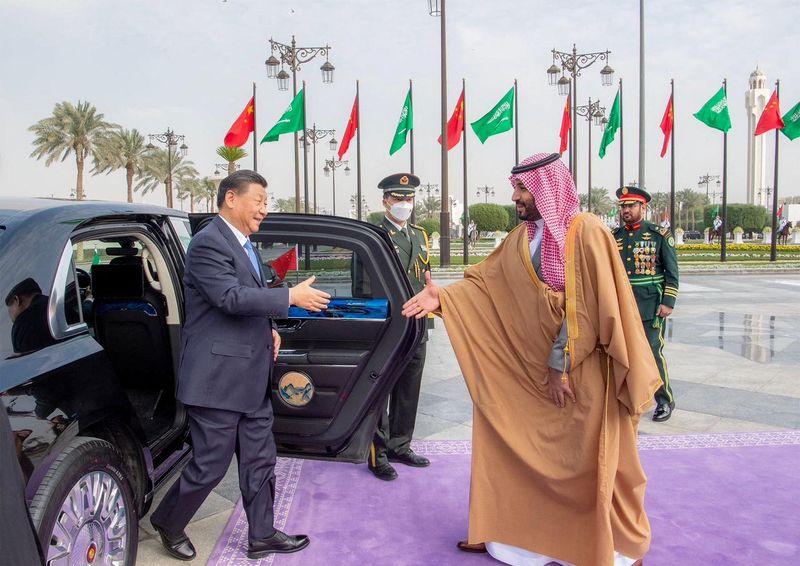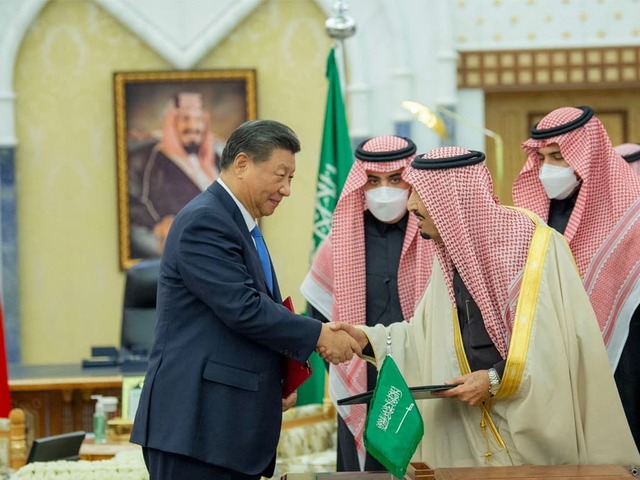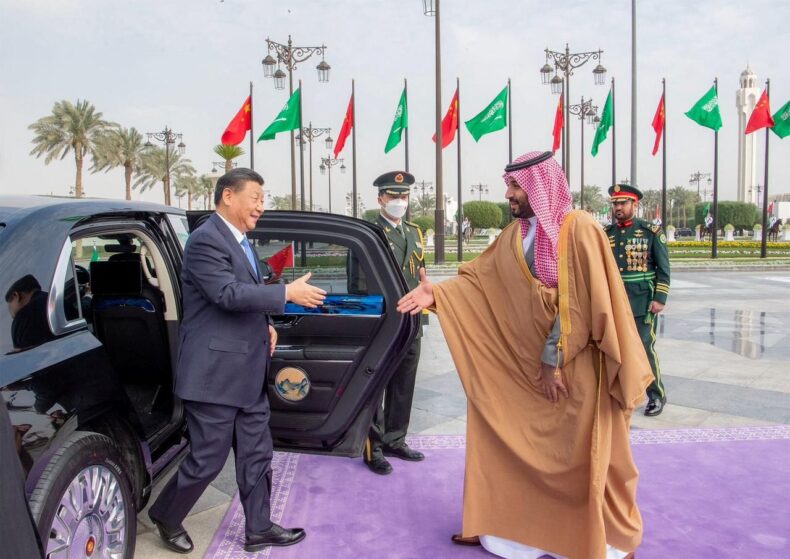Xi Jinping’s visit to Saudi Arabia has resulted in a large-scale tech infrastructure development deal between the Gulf nation and Chinese tech giant Huawei, Reuters reported.
Chinese and Saudi firms also signed 34 deals for investment in green energy, information technology, cloud services, transport, construction, and other sectors, the state news agency SPA reported.
It gave no figures but had earlier said the two countries would seal initial agreements worth $30 billion.
Xi said he was on a “pioneering trip” to “open a new era of China’s relations with the Arab world, the Arab countries of the Gulf, and Saudi Arabia”. “Continue to hold high the banner of non-interference in internal affairs”, Xi added.
Sweet Talk and Warm Hugs.
Xi was extended an extravagant welcome, with the Royal Guard in charge of escorting the Chinese Premier to the Palace.
King Salman and Xi signed the Comprehensive Strategic Partnership Agreement, which intends to prepare the base for further deepening the ties between the two states, both in energy security and tech. After that, Xi met the de-facto ruler of the Saudi state, crown prince Mohammed Bin Salman.

The welcome was in stark contrast to the almost awkward meeting MBS had with POTUS Joe Biden.
The ‘Fist Bump’ between the two leaders was reflective of the frosty relationship the two leaders shared after Biden had promised to make Saudi a pariah state during his presidential campaign, owing to the killing of journalist Jamal Khashoggi.
The deteriorating relations were not helped by Saudi Arabia and OPEC’s decision to limit the production of oil despite the U.S. wanting them to increase production in order to replace the demand for Russian oil in the European markets.

U.S. Frowns…
The U.S. has responded to the visit in a predictable fashion. It has been said that the visit further establishes the Chinese intentions to exert influence in the middle east region but won’t deter the United States policy for the Gulf.
The deal with Huawei will also increase Washington’s security apprehensions for the middle east with the Chinese giant having a history of cybersecurity-related issues with the U.S. Huawei would be involved in developing cloud computing technologies for the Saudi state along with developing High tech 5 G-powered complexes across the Gulf region.
They have already been banned in the States citing privacy concerns of U.S. citizens.

Xi’s visit is just doubling down on a policy of increased involvement with the Gulf that China has been following for some time.
Even this time, the Chinese Premiere is supposed to visit other Gulf nations after the Saudi visit, something he described will be “milestone event in Chinese-Arab relations”.
For the Saudis too, this comes on the back of their continued attempts for creating a more diversified portfolio of alliances after the altercations with its traditional partner U.S. in the past year.
Saudi Energy minister has stated that regional centers would be made for Chinese factories in the Kingdom and that they are China’s “trusted and reliable partners”.
Bin Salman has also been advocating a middle ground to be reached between Russia and the West rather than outrightly being critical of Moscow for engaging in war in Ukraine.
The Geopolitical Chess Board is Set
The ongoing situation puts the U.S. in a kind of jam, with attempts being made to re-energize its middle east alliances while trying to counter China in the Indo-Pacific.

But now China has arrived, knocking at the door of another region critical to Washington’s interests and a region that heavily affects the supply of the most important commodity in the world…FUEL.
Read Also: Friday, December 9, 2022: Latest Cases and Death Tolls by Country for Coronavirus
However, what Saudi and other Gulf states need to take into account is that there is a reason that European states and Asian powers have been distancing themselves from China. The monopolistic nature of Chinese diplomacy and economics is now a known trait. Gulf should be careful about which bully it wants to be in bed with….













